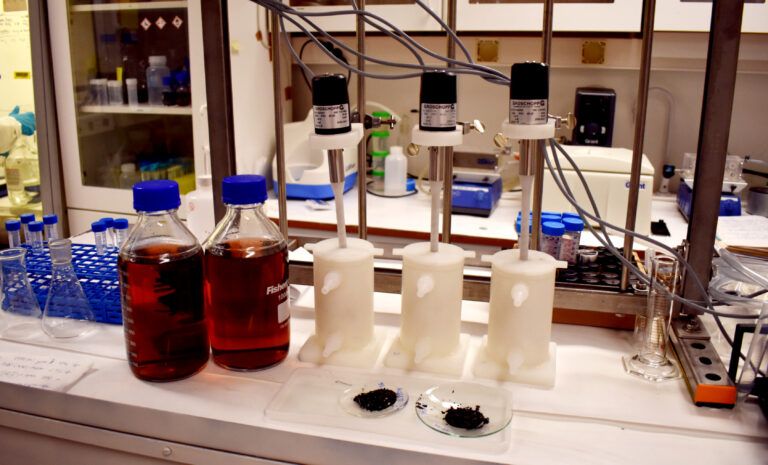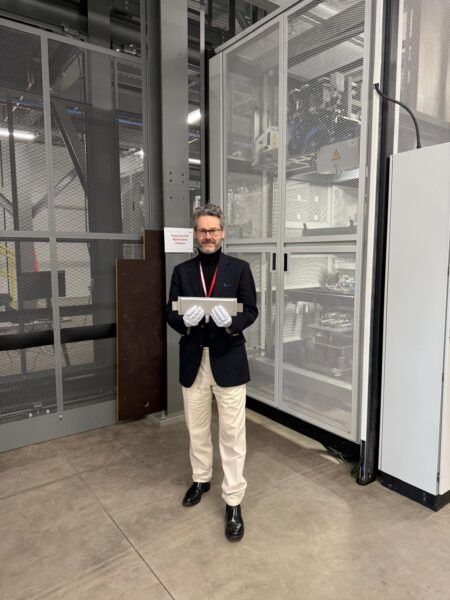Recycling of electric car batteries can be easier, cheaper, and more environmentally friendly, according to a new scientific article from Chalmers University of Technology, Sweden, which outlines an optimized recycling process.
The research, published in the journal Waste Management, has been carried out by some of the world’s foremost experts in the field, and represents a vital step towards the electromobility society of the future.
As the use of electric vehicles (EVs) increases, recycling and recovery processes for EV batteries and the critical raw metals used in their production are becoming an increasingly important area of research. One method that currently attracts a lot of interest is a combination of thermal pretreatment and hydrometallurgy, in which aqueous chemistry is used to recover the metals. Several companies are developing systems that will use this combination, but the researchers at Chalmers University of Technology, Sweden, discovered that these companies use widely differing temperatures and times in their processes, and that there was a great need for a comparative study to determine the optimal thermal treatment and hydrometallurgical process for recycling lithium-ion batteries.
A key finding of the new study was that the hydrometallurgical process can be carried out at room temperature. This is something that has not been previously tested before, but can yield major benefits in the form of reduced environmental impacts and lower costs for recycling the batteries. The process can also be carried out significantly quicker than previously thought.
“Our research can make a huge difference for developers in this area. In some cases it can be as much as reducing the temperature from between 60 and 80 degrees Celsius, down to room temperature, and from several hours to just 30 minutes,” says Burcak Ebin, researcher at the Department for Chemistry and Chemical Engineering at Chalmers and one of the main authors of the article.
The researchers investigated how the different steps – thermal pretreatment and hydrometallurgy –are affected by each other. An important comparison was made between two different approaches to thermal pre-treatment – incineration or pyrolysis. The latter is without oxygen and is considered more environmentally friendly, and the researchers determined that this gave the best results.
“To meet the huge need for battery recycling that is coming, the processes currently in use must be made as effective and efficient as possible, so this study offers invaluable knowledge for the manufacturers and operators of this technology. The methods we present can also be used to optimize the recycling of all kinds of lithium-ion batteries,” explains Martina Petranikova, Associate Professor at the Department of Chemistry and Chemical Engineering at Chalmers, who has also worked with Northvolt, one of Europe’s largest battery manufacturers, helping to develop and implement their recycling processes.
If recycling of electric car batteries is to reach the volumes required for the future, the costs must be radically reduced. Improving the processes is therefore a crucial challenge.
“To reduce the costs, we need to cut the steps in the recycling process. We are working on several projects with that aim right now, and close collaborations and good communication between researchers and the developers of the technology will be extremely important for us to succeed with the challenges we face,” said Petranikova.
An example of this is visible in connection to a new trend that has spread among the producers of EV batteries – solid state batteries. These batteries contain significantly more different metals, which makes the recycling much harder.
“As researchers we see a vital need to agree on a global standard for a maximum number of metals in these batteries,” Petranikova added.





